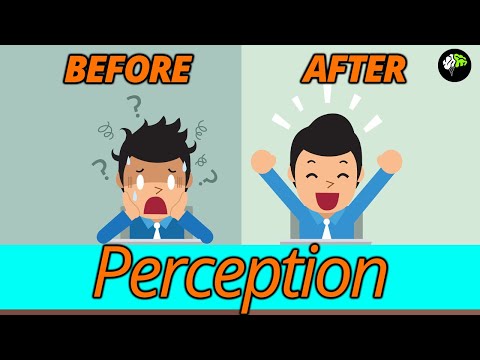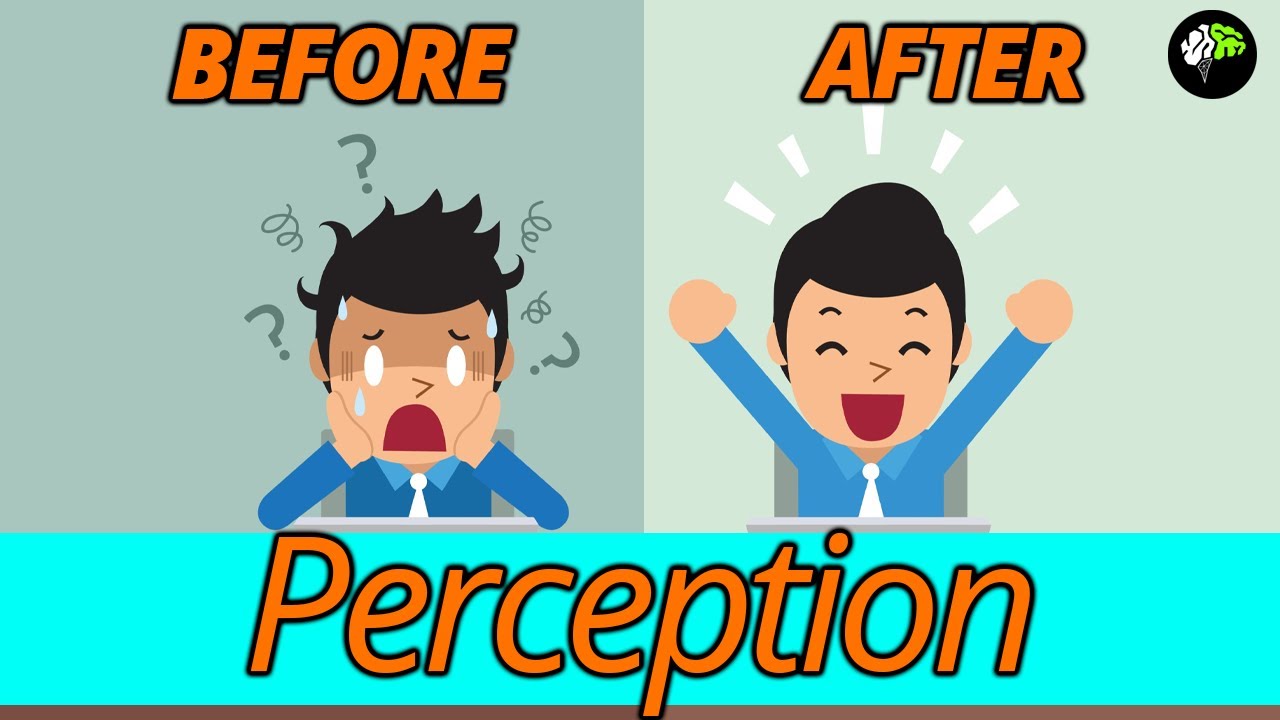Perception in psychology is a fascinating field that delves into the intricate workings of the human mind, exploring how we interpret and make sense of the world around us. It involves the way we perceive and understand stimuli from our environment, shaping our thoughts, beliefs, and actions. By examining perception, psychologists aim to unravel the complex processes that occur within our brains, providing insights into why we see things differently and how our experiences shape our reality. Understanding perception can unlock a deeper understanding of human behavior, shedding light on why we may have different interpretations of the same event and how our biases influence our perceptions. Through studying this captivating aspect of psychology, we gain knowledge about how our senses work together to create our perception of reality. We explore the intriguing ways in which our brains process information, allowing us to navigate the world and make decisions based on our interpretation of incoming stimuli. By delving into the intricacies of perception, we gain a deeper appreciation for the complexity of the human mind and the fascinating ways in which our perceptions shape our understanding of the world.

Perception in Psychology
| Aspect of Perception | Description |
|---|---|
| Sensation | Sensation refers to the process by which our sensory receptors and nervous system receive and detect stimuli from our environment. It involves the initial capture of information through our senses such as vision, hearing, taste, touch, and smell. |
| Perceptual Organization | Perceptual organization is the cognitive process through which we make sense of the sensory information received. It involves the grouping, organizing, and interpreting of the sensory input into meaningful and coherent patterns, objects, or events. |
| Perceptual Constancy | Perceptual constancy refers to the ability of our perceptual system to maintain a stable perception of an object or event despite variations in its physical characteristics, such as changes in size, shape, color, or illumination. It allows us to recognize objects and perceive them as consistent and stable entities. |
| Depth Perception | Depth perception is the ability to perceive the relative distance and three-dimensional structure of objects in our visual field. It involves the use of various depth cues, including binocular cues (such as retinal disparity) and monocular cues (such as linear perspective, interposition, and motion parallax). |
| Perceptual Illusions | Perceptual illusions are misinterpretations or distortions of sensory stimuli that occur due to the inherent limitations and biases of our perceptual system. They demonstrate how our brain can sometimes misperceive or misinterpret sensory information, leading to subjective experiences that deviate from objective reality. |
| Perceptual Development | Perceptual development refers to the gradual maturation and refinement of our perceptual abilities throughout the different stages of life. It involves the integration of sensory information with cognitive processes, such as attention, memory, and learning, leading to the formation of more complex and accurate perceptual representations. |
“Unveiling the Power of Perception: Unraveling Mind Control in Psych 101”
What is Perception in Psychology?
Perception is a fundamental process in human psychology that involves the interpretation and understanding of sensory information received from the environment. It is through perception that we make sense of the world around us, forming our beliefs, attitudes, and behaviors. Our perception is shaped by various factors, including our past experiences, cultural background, and personal biases. Understanding perception is crucial for psychologists as it helps explain how individuals perceive, interpret, and respond to the world.
The Process of Perception
Perception is a complex process that involves several stages. The process begins with sensation, where sensory organs receive information from the environment through vision, hearing, taste, touch, and smell. This raw sensory data is then transformed and organized through a process called transduction, where it is converted into neural signals that can be understood by the brain. The brain then interprets these signals, making sense of the information and giving it meaning. Finally, the brain uses this interpreted information to construct our perception of the world.
Perceptual Biases and Illusions
Despite the seemingly objective nature of perception, it is important to recognize that our perception is not always an accurate representation of reality. Our perception can be influenced by various biases and illusions that can distort our understanding of the world. These biases and illusions can be caused by factors such as cognitive processes, cultural influences, and personal beliefs. For example, the confirmation bias leads individuals to interpret information in a way that confirms their preexisting beliefs, while the hindsight bias causes people to believe that an event was more predictable than it actually was.
The Role of Attention in Perception
Attention plays a crucial role in perception as it determines which sensory information we focus on and process. Our attention is limited, and therefore, we cannot attend to all stimuli in our environment simultaneously. Instead, we selectively attend to certain stimuli while filtering out others. This selective attention can be influenced by various factors, including the salience of a stimulus, personal interests, and cognitive load. For example, when reading a book, we may not be aware of ambient noises in the room because our attention is focused on the text.
Perception and Interpretation
Interpretation is an integral part of the perceptual process. Once sensory information is received and organized, the brain assigns meaning to it based on our past experiences, knowledge, and expectations. Our interpretation of sensory information can vary from person to person, as it is influenced by individual differences and cultural factors. For example, people from different cultures may interpret facial expressions differently, leading to variations in perception of emotions. Moreover, our interpretation of sensory information can be influenced by our emotional state, as emotions can color our perception and influence our judgment.
The Importance of Perception in Psychology
Perception is a fundamental concept in psychology that helps us understand how individuals perceive and interpret the world. It is through perception that we form our beliefs, attitudes, and behaviors. By studying perception, psychologists gain insights into how individuals make sense of sensory information and how this process can be influenced by various factors. Understanding perception is crucial in fields such as clinical psychology, where perceptual biases and illusions can impact mental health and well-being. Furthermore, perception plays a role in areas such as social psychology, where it influences how individuals perceive and interact with others. Overall, perception is a fascinating area of study that sheds light on the intricacies of human cognition and behavior.
In conclusion, perception is a complex process in psychology that involves the interpretation and understanding of sensory information received from the environment. It is shaped by various factors and involves several stages, including sensation, transduction, interpretation, and construction of our perception of the world. However, our perception is not always an accurate representation of reality and can be influenced by biases and illusions. Attention plays a crucial role in perception, as it determines which sensory information we focus on and process. Interpretation is also integral to perception, as it assigns meaning to sensory information based on our past experiences, knowledge, and expectations. Understanding perception is vital in psychology as it helps explain how individuals perceive, interpret, and respond to the world.
